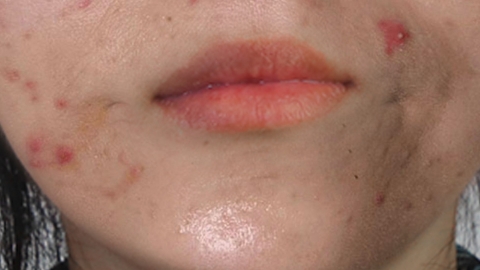How to treat acne vulgaris
Acne may be caused by puberty, hormonal imbalances, stress and emotional fluctuations, improper skin care, or bacterial infection within the hair follicles, and can be improved according to individual conditions. It is recommended to visit a hospital promptly for diagnosis and treatment under a doctor's guidance.

1. Puberty: During puberty, changes in sex hormone levels—especially increased androgens—stimulate sebaceous glands to secrete more oil, leading to clogged pores and the formation of acne. Keep the face clean, use gentle facial cleansers, and avoid using overly oily skincare products.
2. Hormonal Imbalances: Apart from puberty, a woman's menstrual cycle, pregnancy, or taking certain medications may also cause hormonal fluctuations that trigger or worsen acne. It is recommended to maintain a regular sleep schedule, avoid staying up late, ensure sufficient sleep, and help restore normal hormone levels and improve skin condition.
3. Stress and Emotional Fluctuations: Stress and emotional changes can lead to hormonal imbalances in the body, especially elevated cortisol levels, which stimulate sebaceous glands to produce more oil, increasing the risk of acne. It is recommended to seek psychological counseling and learn stress management techniques such as meditation and yoga to reduce mental stress.
4. Improper Skin Care: Using overly oily skincare products or incorrect cleansing habits can block hair follicles, interfere with normal skin metabolism, and worsen acne. Choose skincare products suitable for your skin type and avoid using overly oily products. Regularly use gentle exfoliation to keep the skin clean.
5. Bacterial Infection in Hair Follicles: Propionibacterium acnes proliferates within the hair follicles, causing an inflammatory response that worsens acne, often accompanied by redness, pain, and pustules. Patients can follow medical advice to use medications such as isotretinoin soft capsules, clindamycin phosphate gel, or doxycycline hydrochloride capsules to relieve discomfort.
Patients should choose appropriate treatment methods based on their individual conditions and undergo standardized treatment under a doctor's guidance. At the same time, maintaining good lifestyle and dietary habits can also help prevent and treat acne vulgaris.




